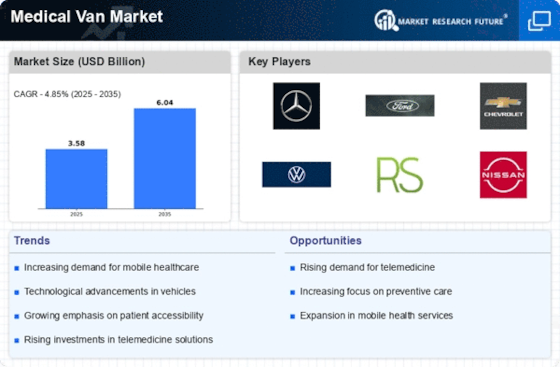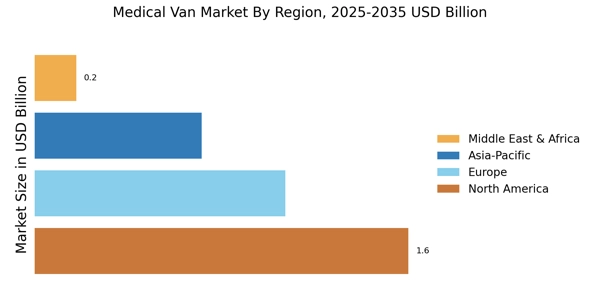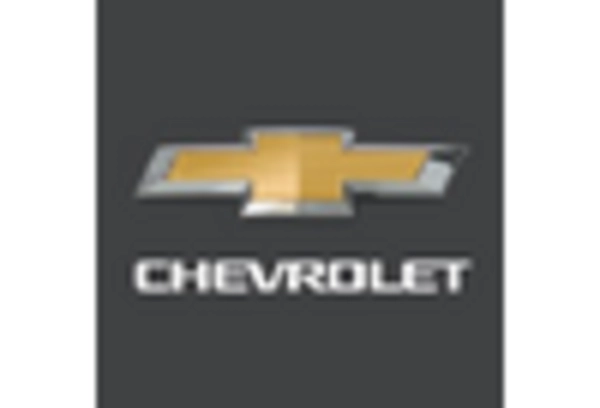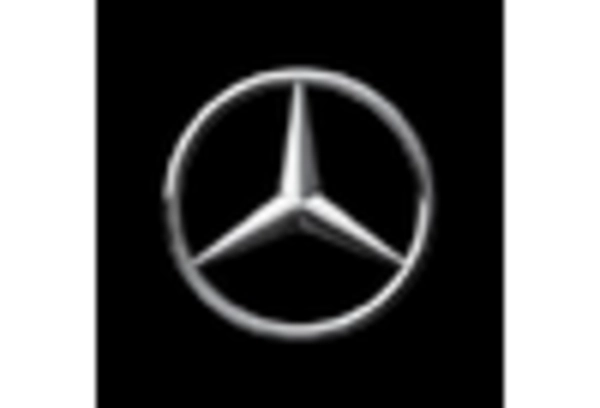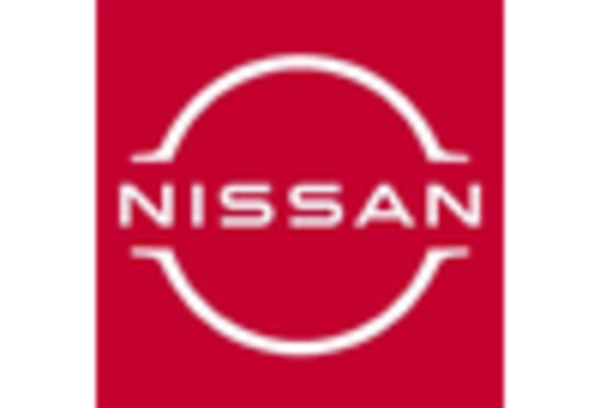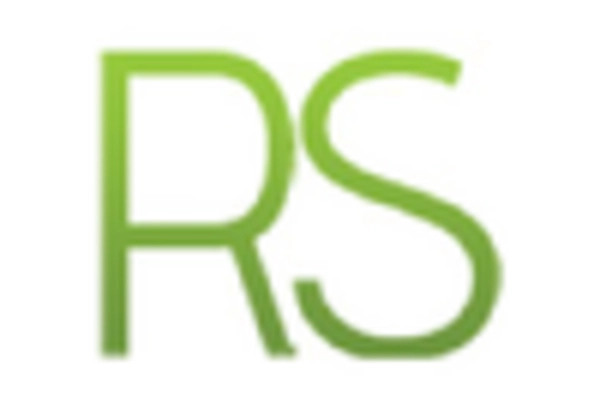Growing Aging Population
The Medical Van Market is notably influenced by the growing aging population. As the demographic landscape shifts, there is an increasing need for healthcare services tailored to the elderly. Mobile medical units are particularly well-suited to address the unique healthcare needs of this demographic, providing essential services such as routine check-ups, chronic disease management, and rehabilitation. Data suggests that the proportion of individuals aged 65 and older is steadily rising, which may lead to a higher demand for accessible healthcare solutions. The Medical Van Market is thus positioned to play a crucial role in meeting these needs, as mobile units can deliver care directly to the homes of elderly patients. This trend indicates a potential expansion of the Medical Van Market, as it adapts to the challenges posed by an aging population.
Government Initiatives and Funding
Government initiatives and funding significantly impact the Medical Van Market. Various health policies and programs aimed at improving healthcare access have led to increased investments in mobile health solutions. For example, many governments are allocating resources to support the establishment of mobile clinics, particularly in rural and underserved regions. Recent reports indicate that public funding for mobile health initiatives has risen, reflecting a commitment to enhancing healthcare delivery. This financial support not only facilitates the growth of the Medical Van Market but also encourages partnerships between public and private sectors. As governments continue to prioritize healthcare accessibility, the Medical Van Market is likely to experience sustained growth, driven by favorable policies and increased funding opportunities.
Increased Focus on Preventive Healthcare
The Medical Van Market is significantly influenced by the increasing focus on preventive healthcare. As healthcare systems worldwide shift towards proactive health management, mobile medical units are becoming essential in delivering preventive services. This includes vaccinations, health screenings, and wellness programs, which are crucial in reducing the burden of chronic diseases. Data indicates that preventive healthcare initiatives have gained traction, with many governments and organizations advocating for early intervention strategies. The Medical Van Market stands to benefit from this trend, as mobile units can effectively reach populations that may otherwise lack access to preventive services. By facilitating early detection and intervention, the Medical Van Market not only contributes to better health outcomes but also aligns with broader public health goals, suggesting a sustained demand for mobile healthcare solutions.
Technological Advancements in Medical Vans
Technological advancements play a pivotal role in shaping the Medical Van Market. The integration of cutting-edge medical equipment and telemedicine capabilities enhances the functionality of mobile health units. For instance, the incorporation of diagnostic tools and electronic health records allows for real-time patient monitoring and data management. Recent statistics indicate that the adoption of telehealth services has increased significantly, further driving the demand for technologically equipped medical vans. This trend not only improves the quality of care provided but also streamlines operational efficiency for healthcare providers. As technology continues to evolve, the Medical Van Market is likely to witness further innovations, potentially leading to enhanced service delivery and patient outcomes. The ongoing investment in technology within this sector suggests a promising future for the Medical Van Market.
Rising Demand for Mobile Healthcare Services
The Medical Van Market experiences a notable increase in demand for mobile healthcare services. This trend is driven by the growing need for accessible healthcare solutions, particularly in remote and underserved areas. As populations expand and urbanization continues, the necessity for mobile medical units becomes more pronounced. According to recent data, the number of mobile health units has surged, indicating a shift towards more flexible healthcare delivery models. The Medical Van Market is thus positioned to capitalize on this demand, as healthcare providers seek innovative ways to reach patients. Furthermore, the convenience of on-site medical services enhances patient engagement and satisfaction, potentially leading to improved health outcomes. This driver suggests a robust growth trajectory for the Medical Van Market as it adapts to the evolving needs of healthcare consumers.


